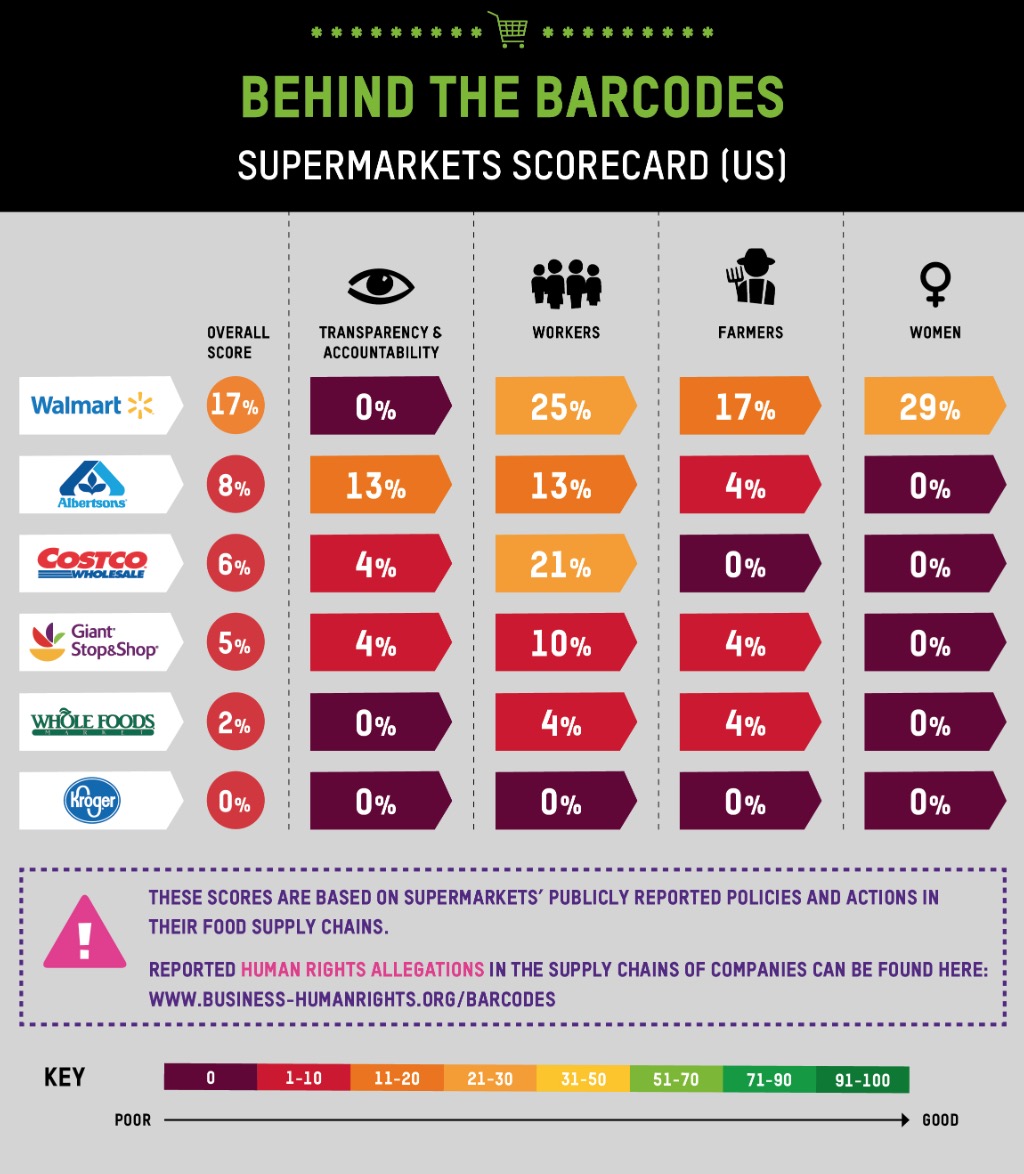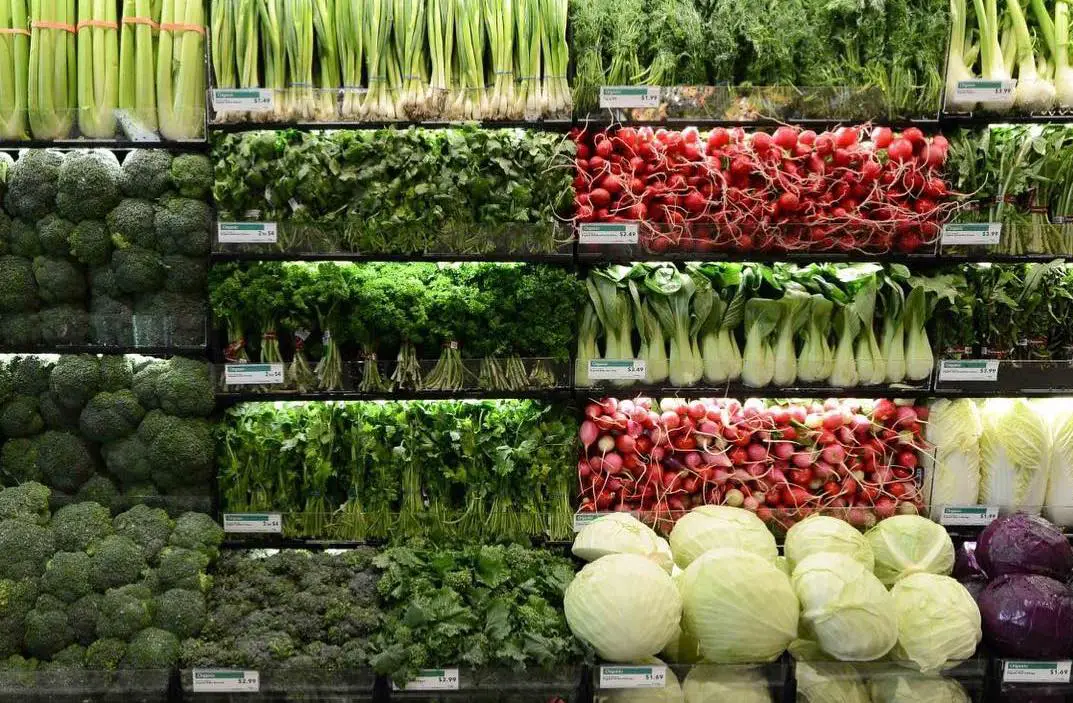Have you ever felt that craving … you just NEED chocolate-covered pretzels? Or maybe some pizza poppers, and possibly fruit snacks? Or, if you’re feeling especially healthy that day, those cool, organic, baked apple chips?
You drop your homework, snag that reusable shopping bag, find your keys and drive (or take a Lime scooter, if you want to deepen your shade of environmentally sustainable green) over to your nearest Whole Foods. You fill your cart with organic, eco-friendly snacks, thank the cute cashier at the checkout counter, and go on your merry way. You feel pretty good about yourself, because you know Whole Foods is a leading provider for “sustainable food” and “natural food product.”
Whole Foods proudly brands itself as America’s healthiest grocery store, a bold claim that earns the trust and purchasing power of its tens of thousands of customers who shop in their stores every day. Their commitment to animal welfare, sustainable food sources and ecologically conscious products is admirable, and should set the standard for other supermarkets in regard to the quality of products placed on their shelves. How they treat their workers, however, is far less wholesome.
Oxfam, a global non-profit NGO that works to solve systemic poverty and injustice in the world, rolled out its new campaign, Behind the Barcodes, in June 2018. This global campaign seeks to confront supermarkets and their poor treatment of small-scale farmers and plantation workers who grow, pick, package and ship the food that ends up in our grocery stores, restaurants and pantries.
Oxfam discovered that some of the top supermarkets in the United States are not doing a good job protecting the rights of their workers, enforcing equality for women or supporting small independent farmers. Additionally, they are not transparent about this unethical sourcing of products within their supply chains.
Oxfam analyzed data based on each supermarket’s publicly reported policies and actions in their food supply chains and noted America’s top six culprits in the grocery industry that failed to meet the needs of their workers: Walmart, Albertson’s, Costco, Stop & Shop/Giant-Landover, Whole Foods and Kroger.
The most shocking discovery was that of Whole Foods, a store that clearly states that they “aim to set the standards of excellence for food retailers,” was ranked second from last. Check out Oxfam’s supermarket scorecard for a breakdown of the rankings for each supermarket.

The grocery store that works so hard to brand itself as a healthy and sustainable shopping destination scored just 2 percent out of 100, with 0 percent in transparency and accountability and 0 percent in gender equality. Amazon, Whole Food’s new owner, has an even worse track record when it comes to ethical working conditions and treatment of workers on the production side of its business. Whole Foods needs to do a better job living up to its reputation.
Let’s narrow the scope from the broad and daunting idea of unethical “food production” to one particular market: the seafood industry, which is concentrated in Southeast Asia in countries like Thailand and Indonesia. Pressures from consumers to keep costs low and the desire of companies to increase their profits leaves fishers and employees in processing factories underpaid and overworked, often in unsafe and degrading conditions. It is not uncommon for employees to work up to 14 hours a day, and often for 27 – 28 days in a row. People often face harassment and discrimination in the workplace, especially women.
One personal testimony from Dewi, a woman who worked in a shrimp factory. She alleged that women who were pregnant were not hired by her factory. They were all forced to take pregnancy tests; if the test came back positive, women were fired to make room for others. Cho, a worker on a fishing boat, was bedridden for three months after an accident on his boat. He says that the waves are extremely dangerous, and people can be swept overboard, oftentimes going unnoticed until the morning when the crew realizes someone is missing.
These are real-life examples of the conditions Oxfam is working to prevent with Behind the Barcodes, along with the possible hardships people face when producing foods for the seafood section in your local Whole Foods.
Despite the Behind the Barcodes’ campaign launch almost five months ago, and despite Oxfam’s numerous attempts to reach out to the company for civil conversation, Whole Foods still has not responded. Even with over 200,000 signatures delivered to their headquarters in Austin, signed by “consumers from all 50 states and 108 countries,” Whole Foods has declined to have a conversation with Oxfam to address allegations of misconduct and human-rights violations. They will not take action toward a more equitable, safer and better future for the thousands of workers in developing communities who cannot afford to feed themselves and their families.
In contrast to Whole Food’s radio silence, some companies have begun to respond to Oxfam’s endeavors. During a weekly briefing to student leaders on their campaigning efforts with Behind the Barcodes, Oxfam America Youth & Engagement Advisor Vania Loredo reported signs of change from several other supermarkets.
“Ahold Delhaize,” Loredo wrote in a Facebook post, “the parent company of US supermarkets Stop & Shop, Giant, and Food Lion invited Oxfam to participate in a meeting with other stakeholders about what the company is doing to become a more sustainable business. This meeting is a direct result of the Behind the Barcodes campaign.”
This is a challenge to Whole Foods. Are they going to sit back and let other companies begin to work toward positive, sustainable change, taking the lead as well as the responsibility for every human life that is a part of their supply chain? Will they actually act in accordance with the mission and values they uphold, as stated on their website?
“We view our trade partners as allies in serving our stakeholders. We treat them with respect, fairness and integrity – expecting the same in return. We listen compassionately, we think carefully, and we always seek win-win relationships with everyone we do business with.”
If this information is new to you, and if you are upset by the actions, or lack thereof, taken by a store you shop at, the best thing you can do is engage with your local grocery store. It is not recommended that you stop shopping there. On the contrary, please continue to shop at your local Whole Foods, Kroger or Costco!
Make connections, strike up conversations or get to know the local store manager. They may or may not even know about the behaviors of their own company on a global scale. Companies care about what their customers think and want to keep your business. Let them know that you will not tolerate injustice as an ingredient in your food.
Oxfam wants you to ask Whole Foods for three simple things:
Greater transparency of where food comes from and how it gets to stores.
Better job understanding where human rights violations are (workers going hungry, abused, discriminated against) in their food supply chains.
Safe environments for workers, especially for women, and more dollars to go to the producers themselves, instead of the pockets of CEOs and administrators.
According to Sarah Zoen, Oxfam’s private sector regional and gender policy senior advisor, their mission is to find evidence of human rights abuses, gather evidence, engage with companies, empower individual communities and encourage public engagement to take action and build a movement for change. I encourage you to be empowered, use your voice and take action! Do not let your Whole Foods get away with their unwholesome behavior.
Oxfam has made extensive reports available on their research process and methodology of gathering information used in their campaign.










